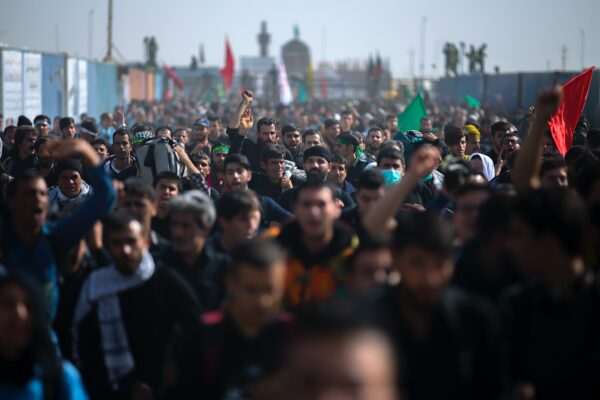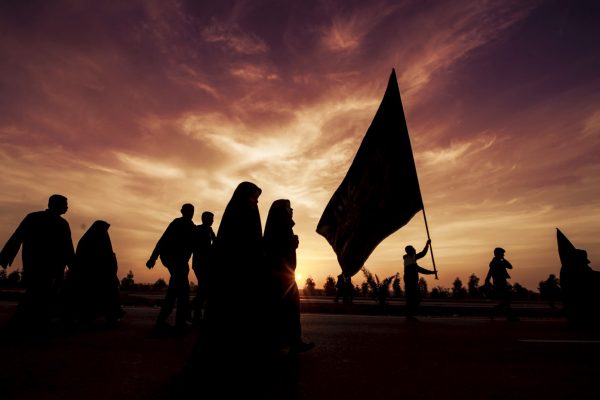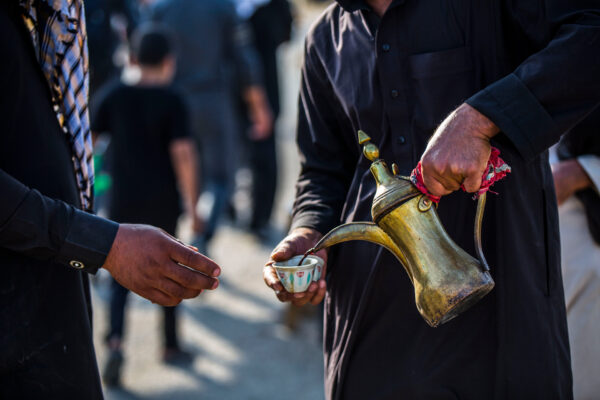A brief overview of how the events in the Battle of Karbala were recorded and are available for us today.
A brief overview of how the events in the Battle of Karbala were recorded and are available for us today.
The events of Karbala transpired 1,383 years ago, but what is fascinating and deserves studying is the amount of detail preserved about the event throughout history and is with us today. Not only do we have a general overview of what occurred, but preserved are sermons and conversations that took place during and after the event. Arguably, events in the early 20th Century were not recorded as meticulously.
Naturally, many ask how this was possible.
How Was the Account of the Battle Initially Communicated?
Reliable accounts of the Battle of Karbala can only come through those who were present on the day, survived and lived to tell the tale. These people can be categorised into three groups:
- Eyewitness accounts of the soldiers who survived the battle
- Eye witness accounts from the people in Hussain ibn Ali’s camp who survived or did not participate in the battle, i.e. his womenfolk and children
- Reporters who were present on the day for the sole purpose of recording the event
People who were not present at the battle and the later generations to come would broadly rely on these three groups of people.
Eyewitness Accounts
Those who survived the battle from both sides spoke about what happened to those who were not present. This is what happens with any event in history and doesn’t require further explanation or elaboration.
Reporters Present at the Battle of Karbala
The enemies of Hussain ibn Ali sent what we could call today a journalist to write down what happened. One of these journalists was named Hamid bin Muslim. The caliph Yazid was not present at the battle, so he paid Hamid to write it all down so he could read what happened. Hamid wrote a blow-by-blow account of what happened during the battle and after as the family of Hussain were taken captives and their ensuing imprisonment.
How the Recording of Events Began
From these primary accounts, namely eye witnesses/participants/survivors accounts and journalists like Hamid, a period of compilation began, where everything known about the battle was preserved in books and manuscripts. Here, sources were not analysed or assessed for their reliability. It was about preserving whatever was there. A revision phase began with Jaffer ibn Muhammad, the great-grandson of Hussain ibn Ali (whose father Muhammad ibn Baqir was at the battle) and thereafter his children, who clarified and revised the events.
Over the course of history, different books emerged. These were classified as follows.
Accounts Related to the Battle of Karbala
Accounts that either partially or fully relate to the Battle of Karbala are split into three categories:
- Reliable sources
- Unreliable sources
- Contemporary sources
- Isolated reports
Reliable Sources on the Battle of Karbala
Reliable sources are those which emerged early after the battle of Karbala. Some of these works are still available today. 33 books are included in this category. Not every book is equally reliable, but on the whole, the authors and narrators are trustworthy.
Unreliable Sources on the Battle of Karbala
As is the case in the history of anything (even in contemporary times where video, audio and digital technology exist), things get distorted. Some distortions are accidental through unintentional human error or due to the ‘Chinese whisper’ effect. Other distortions are deliberate and intentional to present a specific theological or political view in an attempt to make it mainstream. Some distortions are, in fact, exaggerations made by people who may have wanted to exemplify the character or to stir emotions in the reader.
Not every single thing mentioned in a book categorised as unreliable is false (else, this category would be named ‘fabricated sources’). Rather, the author may not have done their due diligence in critically examining the sources. There are approximately 10 books in this category.
Contemporary Sources related to the Battle of Karbala
The number of contemporary sources is the largest out of all the categories. There was a huge boom in the number of authors releasing books about Karbala in the 15th/16th Century. How reliable these sources are depends on the accounts they are relying on. They could be drawing information from sources in the reliable or unreliable category or a combination of both, and this would determine the book’s own trustworthiness.
The Emergence of Isolated Sources pertaining to the Battle of Karbala
Isolated sources are a subcategory of contemporary sources where one may find a new piece of information related to the Battle of Karbala that cannot be found in reliable sources. Scholars say reliable sources have enough information, and anything new that emerges later can be disregarded.
Who Categorises a Source?
Who decides on the reliability of a source is an important question and has been partially answered above. New information that emerges centuries after the battle is not considered if something similar is not found in the early sources. The early sources are naturally considered the most authentic because they were the first to occur. When analysing a specific micro event that occurred on the day of the battle, scholars compare it to other reliably known facts. For example, if Hussain ibn Ali is reported to have said or done something on the day of the battle, it will be compared with what is widely and reliably known about his character. If it stacks up, it is accepted, otherwise rejected.
With respect to this battle, a team of researchers have gone to great lengths to assess the reliability of the accounts on Karbala. This team studied hundreds of works and went through each reference to trace it back to its source. Through this process, they were able to identify strong, weak, distorted and false accounts of the battle.





